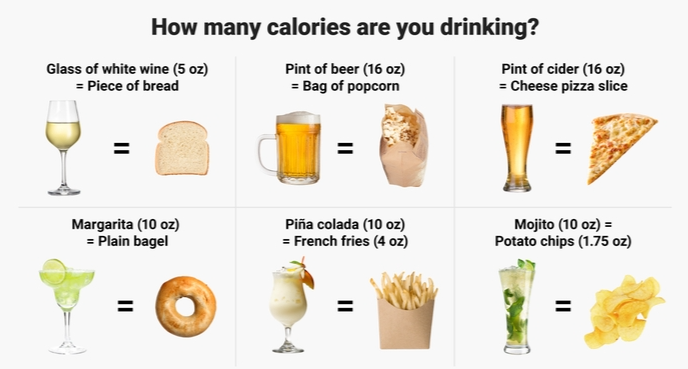The Effects of Alcohol on Exercise and Health
Enjoying a drink now and then is a common part of social life, but if you’re serious about your health and fitness, you might wonder how alcohol fits into the equation.
While a glass of wine or a beer might not seem like a big deal, alcohol can have significant effects on your performance, recovery, and overall well-being.
Let’s take a closer look at how alcohol impacts different aspects of exercise and health.
How Alcohol Affects Athletic Performance
If you’ve ever tried to work out after a night of drinking, you probably noticed that you weren’t at your best. Alcohol affects coordination, balance, and reaction time, which can make exercise feel harder and increase the risk of injury. It also reduces energy production by interfering with how your body metabolizes carbohydrates, your main source of fuel during workouts.
Studies have shown that alcohol impairs motor skills and endurance, making it harder to perform at your peak. A study published in the Journal of Strength and Conditioning Research found that consuming alcohol the night before training led to reduced muscle strength and power output the next day. If your goal is to improve performance, limiting alcohol—especially before an intense workout or competition—is a smart move.
Alcohol and Hydration
Hydration plays a crucial role in exercise, and alcohol is a major disruptor. Alcohol is a diuretic, meaning it increases urine production and can lead to dehydration. When you’re dehydrated, your body struggles to regulate temperature, deliver nutrients to muscles, and remove waste products, all of which can negatively impact your performance.
A study in the American Journal of Physiology found that alcohol consumption significantly impairs fluid balance, making it harder for the body to rehydrate properly after exercise. If you’re drinking after a workout, it’s essential to replace lost fluids with water or electrolyte-rich drinks before consuming alcohol.
Alcohol and Weight
If you’re trying to lose or maintain weight, alcohol can be a sneaky culprit. Alcoholic drinks are packed with empty calories, meaning they provide energy but little to no nutritional value. A standard beer contains around 150 calories, a glass of wine has about 125, and cocktails can be even higher due to added sugars.

Additionally, alcohol affects metabolism. Your body prioritizes breaking down alcohol over burning fat or carbs, which can slow down your weight loss efforts. A study in the European Journal of Clinical Nutrition found that alcohol consumption can lead to increased appetite and reduced self-control, making it easier to overeat. If weight management is a goal, moderating alcohol intake is key.
Alcohol and Recovery
After a tough workout, your body needs time to repair and rebuild. Unfortunately, alcohol interferes with the recovery process. It affects protein synthesis, the process by which your muscles rebuild and grow after exercise, and impairs the body’s ability to replenish glycogen, which is essential for energy restoration.
Inflammation is another concern. Alcohol increases inflammation in the body, which can prolong muscle soreness and delay healing. According to a study in The Journal of Applied Physiology, drinking alcohol after resistance exercise led to a decline in muscle protein synthesis, making it harder for muscles to recover efficiently. If you want to get the most out of your workouts, giving your body time to recover without alcohol is a good idea.
Muscle Growth and Alcohol
Building muscle requires proper nutrition, strength training, and recovery. Alcohol can disrupt this process in multiple ways. Not only does it interfere with protein synthesis, but it also impacts testosterone levels. Testosterone plays a key role in muscle growth, and excessive alcohol consumption can lower testosterone while increasing cortisol, a stress hormone that breaks down muscle tissue.
A study published in Alcohol and Alcoholism found that heavy drinking reduced testosterone levels for up to 24 hours, which could slow muscle development over time. While an occasional drink is unlikely to have a major impact, regular heavy drinking can make it harder to build and maintain muscle.
Alcohol and Sleep
Sleep is one of the most underrated components of fitness, and alcohol can have a major effect on sleep quality. While it may help you fall asleep faster, alcohol disrupts deep sleep and REM sleep, which are essential for muscle recovery, memory consolidation, and overall well-being.
Research in the Journal of Clinical Sleep Medicine found that alcohol reduces sleep efficiency, leading to more nighttime awakenings and lower-quality rest. Poor sleep can result in decreased energy, slower reaction times, and impaired decision-making—all of which can affect exercise performance. If you want to optimize recovery and feel your best, limiting alcohol before bed can help improve sleep quality.
How Much Is Too Much?
So, how much alcohol is considered “safe” while maintaining a healthy lifestyle? Health experts generally recommend moderation. For men, this means up to two drinks per day, and for women, up to one drink per day, according to guidelines from the Centers for Disease Control and Prevention (CDC). However, drinking every day—even within these limits—can still negatively impact health and fitness goals.
The key is balance. If you choose to drink, aim to have alcohol-free days during the week and avoid drinking close to workouts or bedtime. Staying mindful of your intake and making sure it doesn’t interfere with hydration, recovery, and sleep will help you maintain peak performance and overall health.
Final Thoughts
Alcohol and exercise don’t mix well, but that doesn’t mean you have to give up drinking entirely. I am the last person to suggest stopping completely. But if you are drinking in excess, every day, it may be time to cut down.
The occasional drink is unlikely to derail your fitness goals, but regular or excessive consumption can take a toll on performance, hydration, recovery, and sleep.
By drinking in moderation and making smart choices, you can still enjoy a social drink while keeping your health and fitness on track.
Listening to your body, prioritizing hydration, and ensuring adequate recovery are all essential for maintaining a strong and healthy lifestyle—whether you drink or not.
Steve

Please support me so I can bring you more posts like this.
Some links on this site may be affiliate links, and if you purchase something through these links, I will make a commission on them.
There will be no extra cost to you and, you could actually save money. Read our full affiliate disclosure here.

